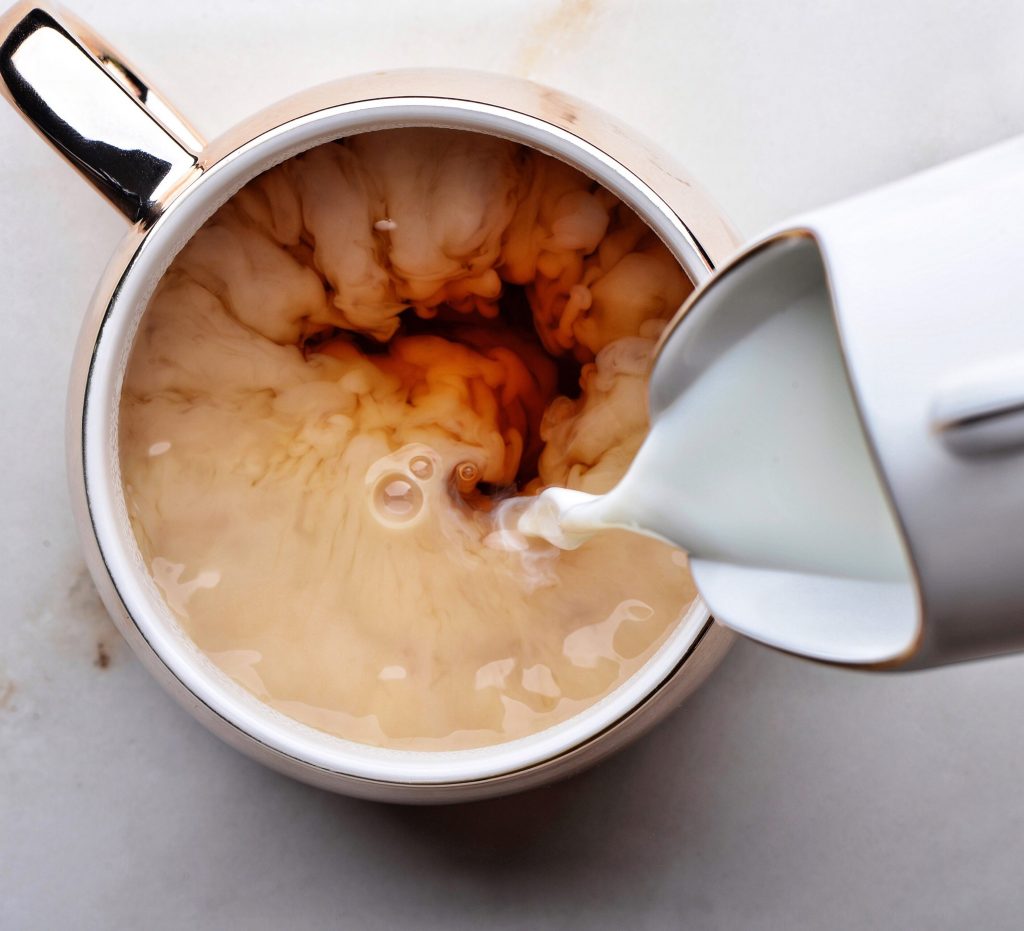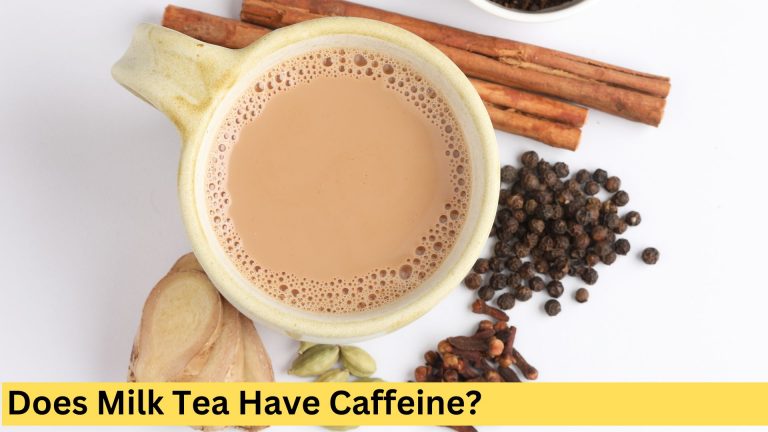Does Milk Tea Have Caffeine? If you love milk tea but are wondering about its caffeine content, you’re not alone! Many tea lovers enjoy this creamy, flavorful drink but want to know how much caffeine they’re actually consuming. Whether you’re trying to cut back on caffeine or just curious about how milk tea compares to coffee, we’ve got you covered.
Let’s explore whether milk tea has caffeine, how much it contains, and what factors affect its caffeine levels.
What is Milk Tea?

Milk tea is exactly what it sounds like—a combination of tea and milk. This popular drink can be made with different types of tea, including black, green, oolong, or even herbal blends. The addition of milk creates a smooth, rich flavor, making it a favorite choice for tea drinkers worldwide.
But here’s the big question: Does milk tea contain caffeine? The answer depends on the type of tea used as the base.
Also Read: Does Fanta Have Caffeine?
Does Milk Tea Have Caffeine?
Yes, most milk tea varieties do contain caffeine. However, the caffeine content depends on the tea used. Tea leaves naturally contain caffeine, meaning that any milk tea made with real tea will have some level of caffeine.
Here’s a quick breakdown of caffeine levels in different milk teas:
- Black Tea Milk Tea: Black tea has the highest caffeine content, with an average of 40-70 mg per cup.
- Green Tea Milk Tea: Green tea typically contains 20-45 mg of caffeine per cup, making it a milder option.
- Oolong Tea Milk Tea: Oolong tea falls between black and green tea in terms of caffeine, ranging from 30-50 mg per cup.
- Herbal Milk Tea: Herbal teas (like chamomile or rooibos) are naturally caffeine-free, making them a great choice if you want to avoid caffeine completely.
Also Read: Does Chamomile Tea Have Caffeine?
Milk Tea vs. Coffee: Which Has More Caffeine?
If you’re trying to choose between milk tea and coffee, you might wonder which one packs more caffeine. The answer? Coffee generally has much more caffeine than milk tea.
- Regular brewed coffee: Around 95 mg of caffeine per cup
- Espresso: About 63 mg of caffeine per shot
- Black Milk Tea: 40-70 mg of caffeine per cup
- Green Milk Tea: 20-45 mg of caffeine per cup
So, if you’re looking for a strong caffeine hit, coffee is the better choice. But if you want a moderate boost with a smoother taste, milk tea is a great option.
Also Read: Does Baja Blast Have Caffeine?
Factors That Affect Caffeine Content in Milk Tea
The amount of caffeine in your milk tea isn’t just about the type of tea. Several factors can influence how much caffeine ends up in your drink:
- Type of Tea: Black tea has the highest caffeine levels, while herbal teas have none.
- Steeping Time: The longer the tea steeps, the more caffeine it releases.
- Water Temperature: Hotter water extracts more caffeine compared to cooler or lukewarm water.
- Tea-to-Water Ratio: Using more tea leaves in your brew results in a higher caffeine concentration.
Want a less caffeinated milk tea? Try using fewer tea leaves, steeping for a shorter time, or opting for green tea or decaf options!
Also Read: Does Cacao Have Caffeine?
Types of Milk Tea and Their Caffeine Levels
Bubble Tea (Boba)
Bubble tea, also known as boba tea, typically contains black or green tea, which means it has caffeine. The exact caffeine amount depends on the tea base and how it’s brewed. If you want a caffeine-free option, look for fruit teas or herbal bases.
Thai Milk Tea
Thai milk tea is made with black tea, sweetened condensed milk, and spices. Since it’s brewed with strong black tea, it tends to have a moderate to high caffeine content—around 50-70 mg per cup.
Hokkaido and Okinawa Milk Tea
These Japanese-style milk teas are also made with black tea, so expect similar caffeine levels to Thai milk tea.
Matcha Milk Tea
Matcha, a powdered green tea, contains more caffeine than regular green tea because you’re consuming the whole tea leaf. A cup of matcha milk tea can have anywhere from 50-70 mg of caffeine.
Also Read: Does Mug Root Beer Have Caffeine?
Is There Caffeine-Free Milk Tea?
Yes! If you’re sensitive to caffeine or prefer to drink tea before bed, there are a few options for caffeine-free milk tea:
- Herbal Milk Tea: Rooibos, chamomile, and peppermint teas are naturally caffeine-free.
- Decaf Tea Milk Tea: Some decaffeinated black or green teas retain their flavor without the caffeine.
- Fruit-Based Milk Tea: Many fruit infusions don’t contain caffeine and can be blended with milk for a tasty, caffeine-free alternative.
Also Read: Does Blonde Espresso Have More Caffeine?
Videos About Does Milk Tea Have Caffeine?
Final Thoughts
So, does milk tea have caffeine? Yes, in most cases! The caffeine levels vary depending on the type of tea used, how it’s brewed, and how long it’s steeped. Black tea milk tea tends to have the most caffeine, while herbal milk teas are caffeine-free.
If you’re sensitive to caffeine but love milk tea, consider switching to a milder tea, steeping for a shorter time, or opting for a caffeine-free herbal blend. Whatever your preference, milk tea is a delicious and versatile drink that can be tailored to your needs!

